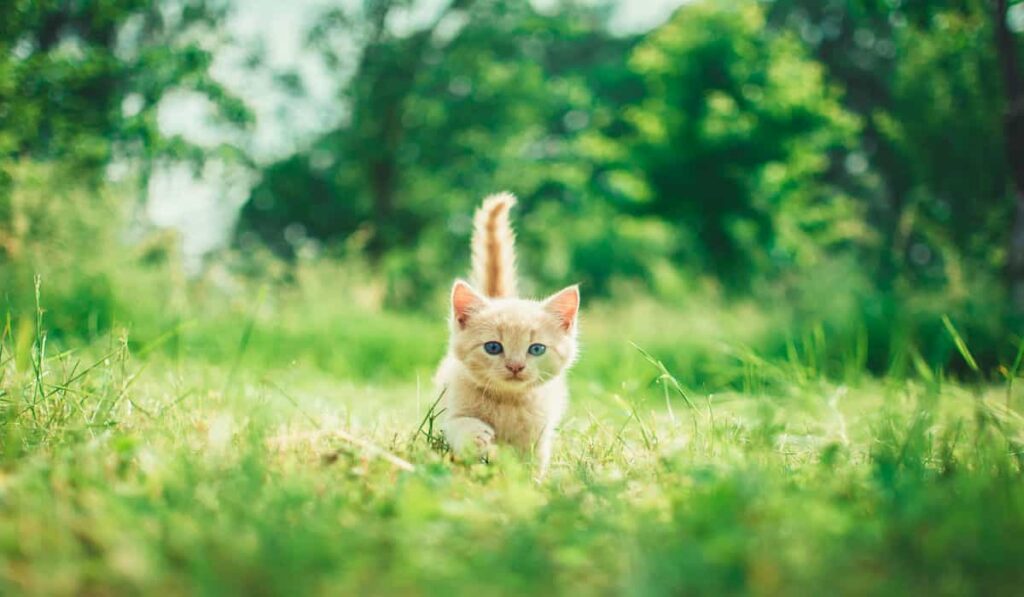Discover the reasons behind the common feline question: “Why do cats quit using litter boxes?” If you’ve ever wondered why your furry companion has stopped using the litter box, you’re not alone. This perplexing behavior can be both frustrating and concerning for cat owners. In this concise guide, we’ll delve into the possible causes behind why cats stop using the litter box, providing you with insights to help address this issue. Let’s unravel the mystery together.
what are the Litter Box Problems with cats?
Many cats, around 10%, can have issues with using their litter boxes. These problems vary. Some stop using the box completely, some only use it for one thing (peeing or pooping), and others do their business both in and out of the box. These issues can happen due to conflicts between cats, not liking the litter or box, past health problems, or just not liking the box’s location.
When a cat avoids the litter box, it can become a long-term problem. They might prefer other places, like your rug or chair. The best way to deal with these problems is to prevent them by making the litter box cat-friendly. We’ll share some common litter box issues and tips on making your cat comfortable using the box.
It’s also crucial to pay attention to your cat’s bathroom habits so you can catch problems early. If your cat starts going outside the box, act quickly to fix it before it becomes a habit.
Cat litter box problems can be tricky, but there are ways to help. The solutions depend on your cat’s specific issue, so read the whole article to understand your cat’s problem and find the right approach for a successful solution.
Health Problems
If your cat starts peeing or pooping in strange places around your home, it might be because of a health problem. Things like a urinary infection, Feline Interstitial Cystitis, or kidney stones could be the culprits, as per the American Society for Prevention of Cruelty to Animals (ASPCA).
What to do: Dr. Savard advises that you should first visit your vet to check for any medical issues. Once you’re sure your kitty is healthy, you can explore other possible reasons for this behavior.
Litter Box Overcrowding
Cats don’t like sharing their bathroom space. If you have more than one cat, and they’re all trying to use one litter box, it can lead to issues.
Here’s the fix: “The simple rule is, you should have one more litter box than the number of cats you have,” suggests Dr. Savard. So, if you’ve got two cats, you should have three litter boxes ready for them. And make sure to space them out because if they’re too close, the cats might think they’re all in the same box.
Litter Box Isn’t Clean Enough
Just like us, cats don’t like using a dirty toilet. Can you blame them? One common reason your cat might not use the litter box is that she prefers a clean place to go. To avoid her choosing your pillow or the bathtub as a restroom, try cleaning her litter box more often. By doing this, she’ll always have a fresh and clean spot to do her business.
Scooping the litter box can be a bit of a chore, which is why we’re big fans of self-cleaning litter boxes. These amazing litter boxes reduce odors and automatically hide the waste, so you won’t have to scoop, and your cat can have a clean place to go every time.
The location isn’t Private or Easy to Access.
If you have a dog or little kids, you’ve probably realized that the litter box should be in a place only you and your cat can reach. It can be tricky to keep curious toddlers and playful pups away from it. While many cats like their privacy, it can be challenging for your cat to reach her box if it’s hidden away. If it’s too hard, she might do her business on the floor.
So, how do you balance your cat’s need for privacy and easy access to the litter box? One option is to switch to a covered litter box, which comes in front-entry and top-entry styles. Another solution is to use an indoor cat door that keeps human doors closed and keeps unwanted guests out. These options also help control odors in your home, which is a win-win!
Litter Box Has Too Much Litter
Here’s a simple solution. Did you know that having too much litter in the litter box can be a problem? Some cat owners might not be aware of this. Every cat is different, but a general rule is that most cats like to have just one to two inches of litter.
Box Size & Litter
There are other reasons why your cat might not use the litter box properly, and it could be linked to the box itself.
Here’s something to think about, as Dr. Savard suggests: Is the litter box too small, or are the sides not tall enough?
Solution: You can try using a bigger box with higher sides.
The kind of litter you use matters, too. Cats might like one type of litter at one time and then change their minds later.
Solution: If you’ve recently changed the litter type, you might need to switch back to the one your cat likes best.
Outdoors Have Become a Pastime
Cats that mainly stay indoors usually don’t have trouble using a litter box when needed. However, if cats go outside, they might prefer to do their business in nature instead of the litter box. If your indoor cat starts spending time outdoors, they might use the litter box less.
Cats that get some outdoor time daily tend to use the litter box less than those who stay inside all the time. So, if your cat is going outside and using the grass and trees for their business, that’s okay! It’s normal and shouldn’t cause any health issues.
The Cat Got Declawed
Cats need their claws to protect their paws from sharp stuff when they walk around. Claws also help keep small bits from hurting their paws. If a cat has their claws removed, their paws become vulnerable, which might cause discomfort and injuries. If your cat’s litter is too hard or lumpy, it could hurt their newly declawed paws and make them unhappy.
So, your cat might search for a better place to do their business. To help your declawed cat feel comfy in the litter box, try using sandy litter made from recycled newspapers or soft materials. Pick a litter without strong smells because those can bother your cat’s declawed paws.
The Litter Is Unattractive
If you’ve changed your cat’s litter recently, and she’s not using the litter box anymore, it’s likely the new litter isn’t suiting her for some reason. It could be the smell, texture, or other things. We can’t understand our cat’s thoughts, but we can switch back to the old litter or try different ones until our cat feels comfortable using the litter box again.
If your cat doesn’t like any cat litter and none of the reasons mentioned fit, it’s crucial to see your vet to check for health issues. This will rule out any medical problems and help you find other solutions.
The Cat is Stressed
Cats are pretty good at sensing when things get tense at home. It could be because of a new family member, like a human or another pet, moving to a new place, or your job keeping you away more. When cats feel stressed, they might behave a bit like little kids who go back to their old potty habits, acting out in different ways, according to Dr. Barrack.
The Litter Box Smells
Your kitty might choose a potted plant over their litter box because it’s smelly! Cats prefer a clean bathroom, and if it’s not tidy, they may go for the plant instead.
Why Do Some Cats Eliminate Outside the Litter Box?
What Not to Do with your cat
No matter what you do to help with your cat’s potty issues, here are some things you shouldn’t do:
- Don’t put your cat’s nose in pee or poop.
- Don’t get mad at your cat and force her into the litter box.
- Don’t lock your cat in a tiny room with the litter box for a long time without trying to fix the problem.
- Don’t use a cleaning product with ammonia to clean up accidents, as it could make your cat go in the same spot again. Use a product made for cleaning up pet messes instead.
Here are some friendly tips to help make your cats feel happier and reduce litter box issues:
Other suggestions to help avoid litter box issues
- Give each cat a special space, like a cozy bed, a hiding pod, or high shelves. This helps them feel like they have more territory to call their own in the house, and they become more confident. If they don’t have their space, they might start peeing in the wrong places.
- Cover windows that let your cats see other cats outside or things that stress them out.
- Play with wand toys to help your cats relax and understand they can share the space. It also tires out any cats who might be bullies. Litter box problems often happen when a cat feels insecure about their territory.
- Have energetic playtime with your cats! Make the wand toy look like a real bird and play until your cats are tired and panting. If they’re exhausted after play, they won’t worry as much about territory or mark it.
- Create a vertical world for your cats with shelves they can jump on. Having sunny spots around the house is also a good idea.
- Use corrugated cardboard items because they absorb scents. Get a bunch of them so each cat can rub on them, scratch, and mark with their scent. Put them at room entrances to make it a neutral territory.
- Consider using Feliway, a special spray that mimics a comforting pheromone cat produce. It can help prevent cats from urinating or scratching in certain areas.
- If your cat has separation anxiety, use a specific blanket that you’ve used when watching TV or reading. Leave it in a spot your cat likes when you’re not at home. This can make your cat feel more secure.
Helping Your Cat Be Comfortable with the Litter Box
If your cat is having trouble using the litter box, there are a few things to consider. Sometimes, even small changes can make a big difference. Whether you’ve got a new cat, a new house, or a new litter box, it’s a good idea to get involved in teaching your cat how to use the box.
Be patient and remember that even little changes can affect your cat’s feelings. With a bit of assistance, your cat will probably get back to using the litter box properly soon!
Keep Them Calm, and Don’t Scold
If your cat is upset and not using the litter box, punishing them won’t help. They don’t understand why you’re angry about something they can’t control. When you visit the vet, try to keep it as stress-free as possible for your already anxious cat.
The Jacksonville Community Pet Clinic’s veterinarians can determine health or behavior issues. They take the time to meet your kitty and let them get used to the vet before any poking or prodding. Also, they have mobile vet clinics that see just a few pets at once, so you won’t have to deal with a crowded waiting room.
Conclusion
In conclusion, understanding why cats quit using litter boxes is essential for cat owners. By exploring the potential reasons behind this behavior, you can take steps to address the issue and ensure your feline friend’s well-being. Remember to maintain a clean and inviting litter box environment, consult with a veterinarian if needed, and be patient as you work with your cat to find a solution. With the right approach, you can restore harmony in your home and ensure your cat has a comfortable place to do their business.




